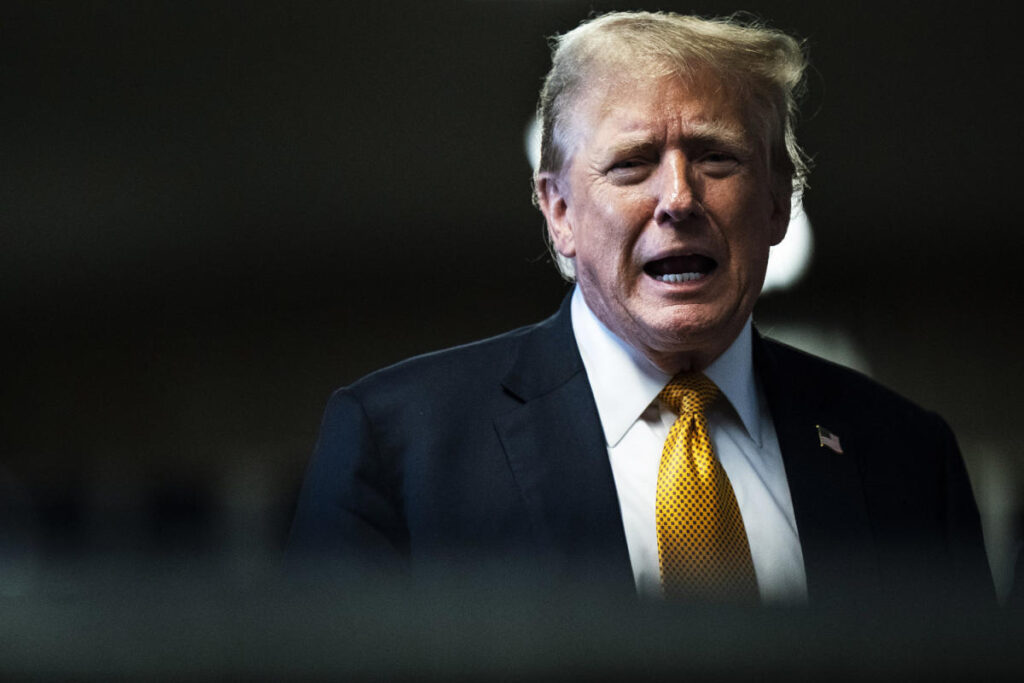Donald Trump’s anticipated victory on election night could significantly impact his ongoing legal battles. Being re-elected as president may allow him to successfully leverage executive privilege to have federal criminal cases against him dismissed altogether. Reports indicate that Justice Department officials have begun exploring avenues to discontinue the two federal cases involving Trump before he assumes office, adhering to a policy that prevents a sitting president from facing prosecution. Trump’s legal team is strategizing on how to halt all four criminal cases against him, asserting that they should be terminated immediately. Although his presidency may not shield him from substantial civil penalties, it could serve as a critical defense mechanism against other legal proceedings. Trump has consistently denied any wrongdoing, labeling the accusations as politically motivated “witch hunts.”
In New York, Trump is set to be sentenced on November 26 for 34 felony counts related to falsifying business records tied to a hush money payment made to adult film actress Stormy Daniels in 2016. If the sentencing is enacted, Judge Juan Merchan has the authority to impose a prison sentence, which would almost certainly be challenged in appeals. Trump’s defense may argue that he cannot be imprisoned while in office, citing constitutional protections. There is ambiguity regarding whether sentencing will proceed or if his conviction will be vacated based on recent legal precedents concerning presidential immunity, a decision Judge Merchan is expected to make by November 12.
Looking towards Georgia, Trump faces state charges for allegedly conspiring to unlawfully overturn the 2020 presidential election results. Currently, proceedings are stalled as an appellate court reviews whether Fulton County District Attorney Fani Willis can pursue the case. If her leadership is overturned, it could lead to a protracted process of appointing a new prosecutor who might opt to dismiss or modify the charges. Even if the case progresses, legal experts speculate that Trump would likely remain shielded from trial until after his presidential term ends, and Willis would have to navigate the implications of Supreme Court rulings that may affect the foundation of her case.
At the federal level, Trump is entangled in two criminal cases initiated by Special Counsel Jack Smith, concerning election interference and mishandling classified documents. A Trump-appointed judge dismissed the documents case due to perceived irregularities in Smith’s appointment, with the Justice Department appealing this decision. However, this situation places Trump in a unique position of potentially halting the appeal as he resumes control of the Justice Department following his election. Meanwhile, the election interference case continues but remains in limbo as the courts await a resolution regarding executive immunity, complicating the timeline for a trial.
In addition to the criminal cases, Trump faces various civil lawsuits linked to his actions during and surrounding the January 6 Capitol insurrection. He could assert presidential immunity in his defense and could argue for the postponement of these cases until after the conclusion of his criminal trial in Georgia to protect against self-incrimination risks. His legal challenges don’t stop there; he is appealing substantial civil judgments totaling over $550 million, including a significant $478 million award resulting from a civil fraud lawsuit instituted by New York Attorney General Letitia James. During a recent public appearance, James affirmed her intent to continue fighting against Trump’s legal maneuvering, underscoring her office’s persistent commitment to their legal challenges.
Lastly, while Trump may leverage his new presidential status to bolster his defenses against certain civil cases, he remains vulnerable to lawsuits that fall outside the protections offered to him as president. A newly filed defamation lawsuit from the Exonerated Five exemplifies this risk. The plaintiffs are pursuing legal action based on unsubstantiated claims Trump made regarding their involvement in a high-profile crime, and previous rulings stipulate that presidents do not possess immunity from civil suits associated with personal allegations outside their official capacities. As Trump’s legal landscape shifts dramatically with his projected election win, the intersection of politics and law will continue to unfold, possibly defining not only his administration but also the precedents for executive accountability in the face of criminal and civil scrutiny.

